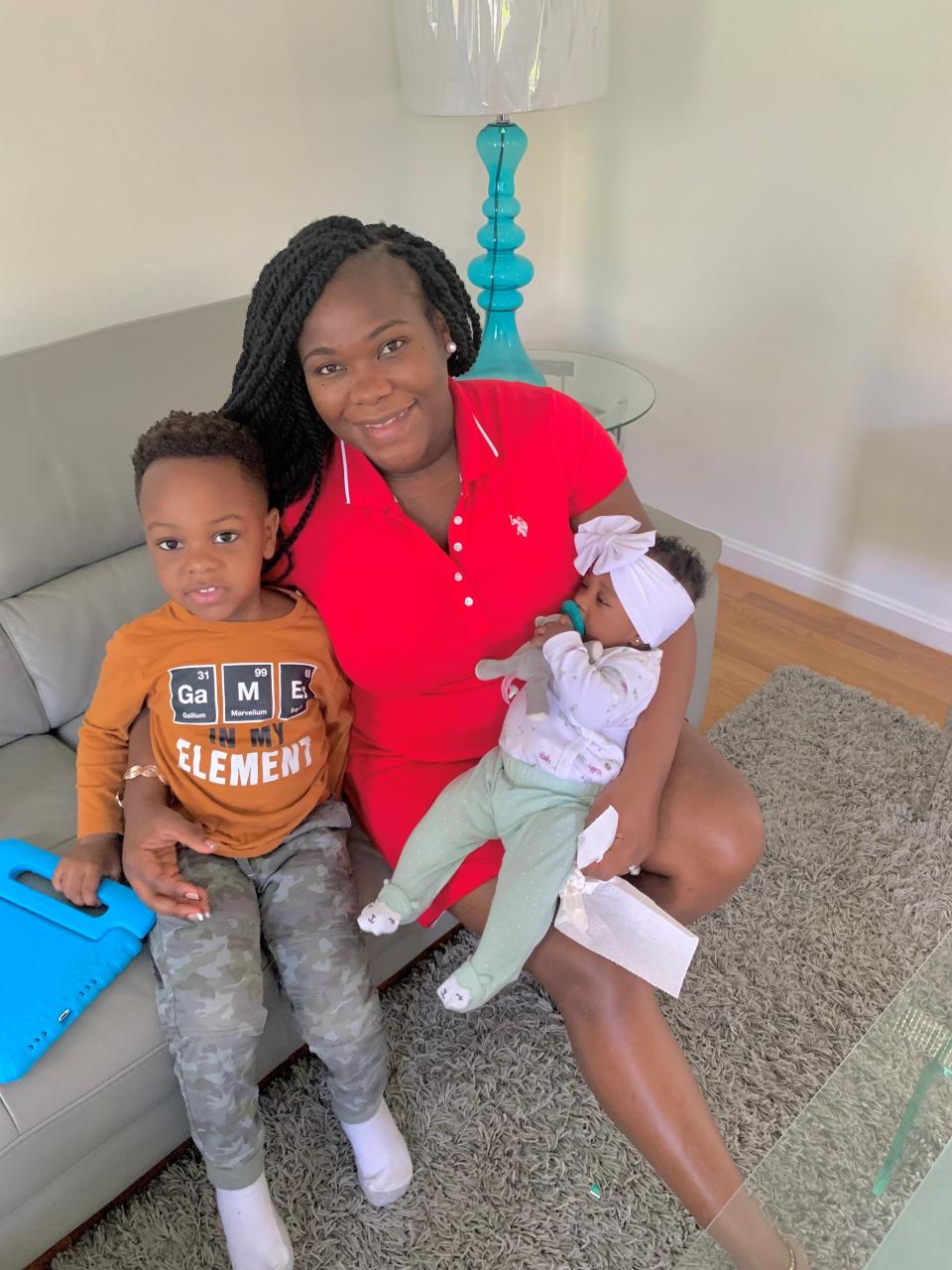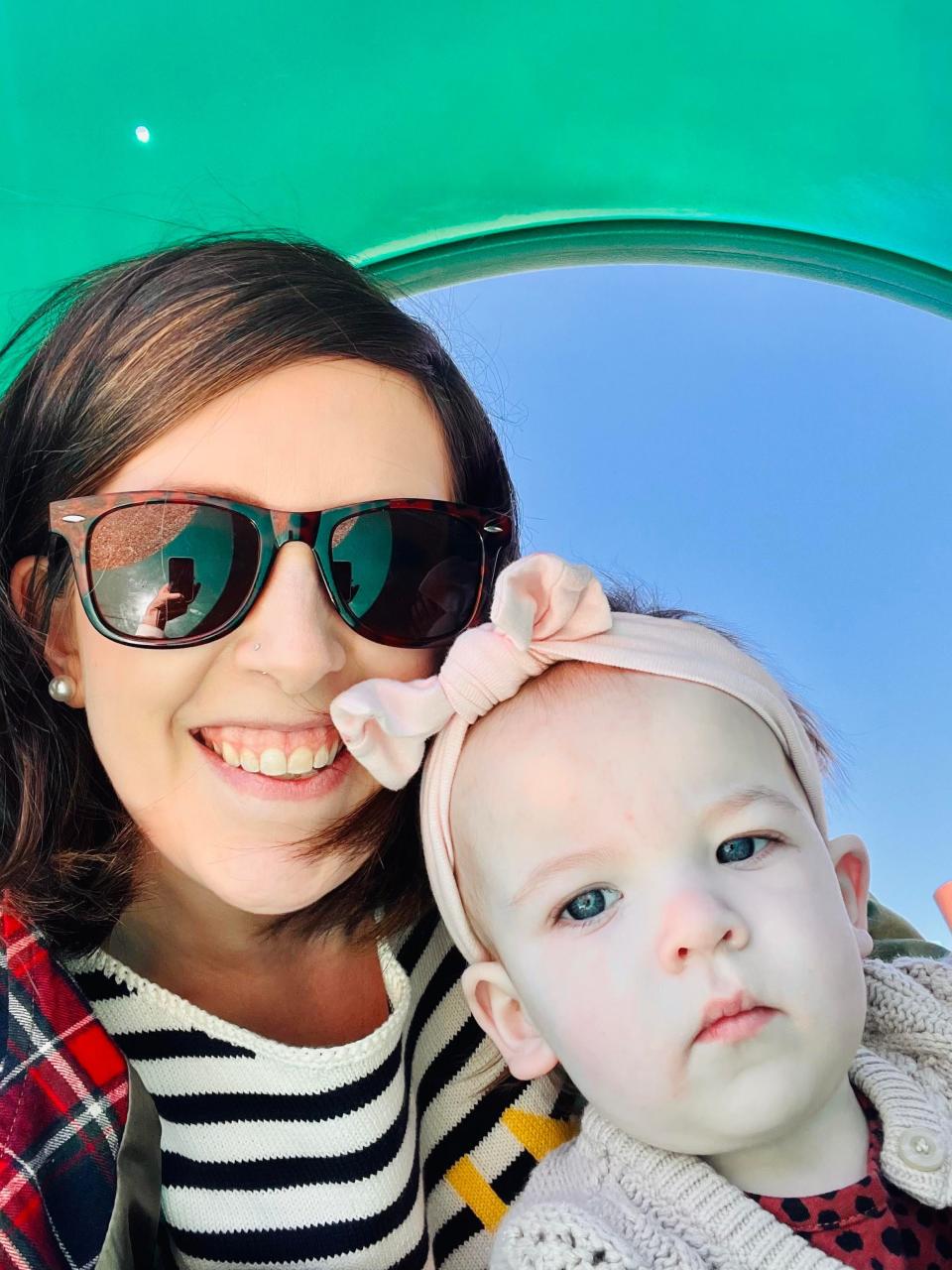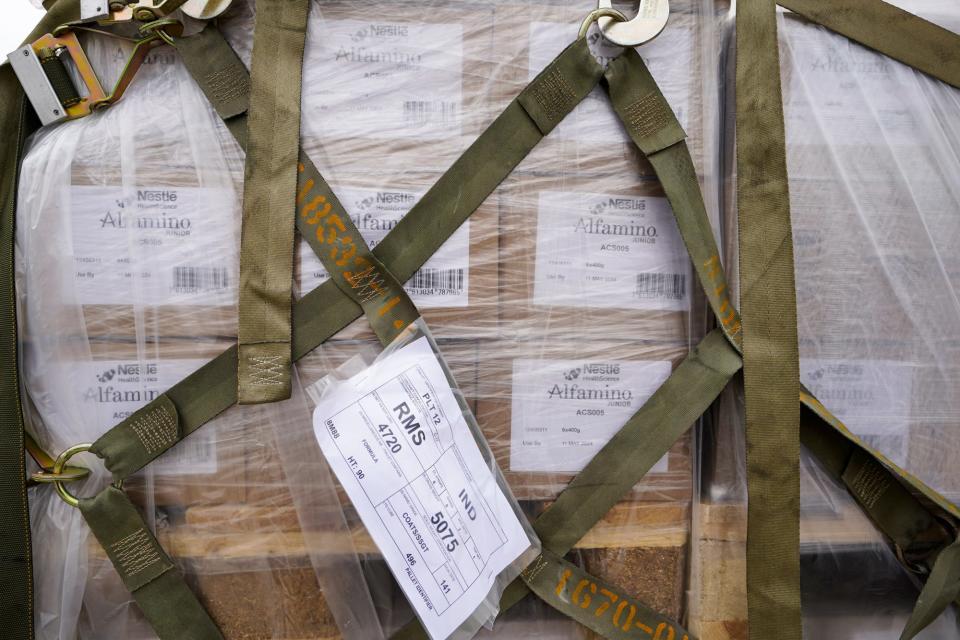'Difficult and scary': Rochester parents scramble to feed their kids with formula shortage
Elli Assiobo-Tipoh of Rochester is down to her last can of formula to feed her four-month-old daughter.
Like so many parents who rely on formula to feed their infants, she is scrambling. Every two weeks, she and her husband search Rochester-area store shelves looking for a can or two of specialty infant formula.
Some parents repeatedly search multiple stores for a specific, needed brand. Others rely on family and friends to help them scour shelves. Many have turned to social media, asking strangers for help in locating and buying essential food.
Formula product recalls and supply chain strains have caused nearly 45% of baby formula to be sold out at retailers across the U.S. The scenario is a source of major stress for many parents who already feel overwhelmed caring for young children during the ongoing pandemic.
Assiobo-Tipoh was impacted by a recent recall, which meant she could no longer feed her daughter Zaafirah the specialty formula she could tolerate with her sensitive stomach and milk protein allergy. The family tried several other brands, which baby Zaafirah did not tolerate well.
"We were stuck between giving her something that could harm her or not feeding her," Assiobo-Tipoh said. "So we're giving her formula that makes her uncomfortable. Sometimes you have to make a decision where the worst choice is still your best choice."
Baby formula shortage: FDA chief admits federal regulators were 'too slow' to act

Hunting down formula
“It has been extremely difficult and scary trying to get formula,” said Ashley Kidney of Greece.
Her 14-month-old daughter Lauren has a milk protein allergy and drinks a prescription formula, which Kidney has struggled to locate in the past six months. About three months ago, she couldn’t fill the prescription at any area pharmacy — she called many to see if a pharmacist could locate it — and received several sample cans from doctors to hold her daughter over for a few weeks.
“It was a great option, but obviously not a solution,” Kidney said, adding that since her daughter is older and still in need of a specialized formula, the search for her desired toddler formula is tough. Not being able to find a consistent available formula is "so stressful."
At the suggestion of her pediatrician, Kidney asked her pharmacist about the availability of another prescription formula. It was in stock, so her daughter temporarily switched to that brand under a new prescription. But as she went to refill that same prescription last week, Kidney faced the same road block. The formula is not available and won't be for weeks.
"I’ve called every pharmacy I can think of and they have nothing in stock," Kidney said, adding that she even called the formula's parent company, Nestle, which declined to send samples due to the shortage. She submitted an order for another brand, with hopes formula will arrive in the next week.
"I just hope she can tolerate it and/or likes it because I've never tried it before," Kidney said.

The lack of available formula is "very stressful," said Christine Copenhagen-Gordon of Rochester, who feeds her 7-month-old son with Similac or comparable generic brands.
"Nobody needs this," she said. "It's hard enough to take care of a baby, you don't need to also worry about how to feed your child."
Shortly after her son was born, Copenhagen-Gordon discovered she had a brain tumor. She's recovering, but is not currently working her job as a dental hygienist as she recovers and also cares for her baby and 3-year-old daughter.
Scrambling for formula "is unnecessary stress on top of all of the other stress," she said.
In recent weeks, Copenhagen-Gordon has struggled to locate her son's formula brand on store shelves. With help from relatives and friends in the Rochester region, she currently has about a month's supply on hand, "but we had to spread our tentacles out to find it, and we did."

Copenhagen-Gordon said it won't be long until she starts to worry about replenishing the supply.
"I want to be prepared," she said. "I'm not going to wait until the last minute or when I am on my last container. I really hope this is all resolved soon."
LeAnn Robb of Holley, Orleans County, Is expecting her second daughter in July and plans to breastfeed. But a variety of health issues, including a cancerous tumor on her collarbone late in her first pregnancy, caused Robb to formula feed her elder daughter for most of her first year, she said.
Robb said she will try to breastfeed and just “hope and pray” that she can.
“There’s a good chance I will be able to breastfeed this time around, but I am worried about it,” she said. “Will I need it? Should I buy it now just in case? Then I think about all of the moms struggling to get formula to feed their babies now.”
The concern, she said, has added extra anxiety in her final months of pregnancy.
Will the shortage end by July?
“I can’t imagine having to search high and low and asking for help find my baby the only thing she can eat to provide her the nutrition she needs,” Robb said.
Why is there a shortage?
The baby formula shortage began in November, when about 11% of popular brands were out of stock, according to data analytics firm Datasembly. For the week beginning May 8, nearly 45% of baby formula was sold out at retailers across the U.S. because of recalls and supply chain strains. Retailers including CVS, Target, Wegmans and Walmart placed purchase limits on formula.
The shortage worsened with the February closure of an Abbott formula factory in Michigan, which was shut down amid recalls of contaminated formula.
More: FDA reaches deal with Abbott to reopen baby formula factory; how long until it's back on shelves?
In the meantime, parents are being advised to contact their pediatricians to discuss the best course of action for their child, which could include seeking samples of new formula brands or donated pasteurized breast milk.

How quickly will formula be readily available again?
At least several weeks and maybe as long as two months.
Abbott has reached a consent decree with the Food and Drug Administration to reopen the Michigan factory provided the plant meets certain safety guidelines. But even with that agreement in hand, Abbott said in a statement it "will take six to eight weeks before product is available on shelves."
On Sunday, a military plane carrying enough specialty infant formula for more than half a million baby bottles arrived Sunday in Indianapolis, the first of several flights expected from Europe aimed at relieving a nationwide formula shortage.
Secretary of Agriculture Tom Vilsack said that the shipment will be directed to hospitals, health care clinics and will feed 9,000 infants and 18,000 toddlers for a week.
Why not breastfeed instead?
Its not that simple. Briefly put, breastfeeding doesn’t work for everyone.
According to health experts, a range of medical issues, from metabolic disorders to infectious diseases, may limit a woman's ability to breastfeed.
Some parents may have other physical or medical barriers.
Other issues with latching, expressing breast milk and milk transfer are very common. These issues are often temporary and can be overcome with appropriate support and resources, but not everyone has access to such resources or success with support.
Why can't some infants breastfeed during formula shortage? What health experts want you to know
Includes reporting from USA Today reporters Adrianna Rodriguez, Merdie Nzanga and Ledyard King
Contact Victoria Freile at vfreile@gannett.com. Follow her on Twitter @vfreile and Instagram @vfreile. This coverage is only possible with support from our readers.
This article originally appeared on Rochester Democrat and Chronicle: Baby formula shortage: Rochester parents scramble to feed their kids

